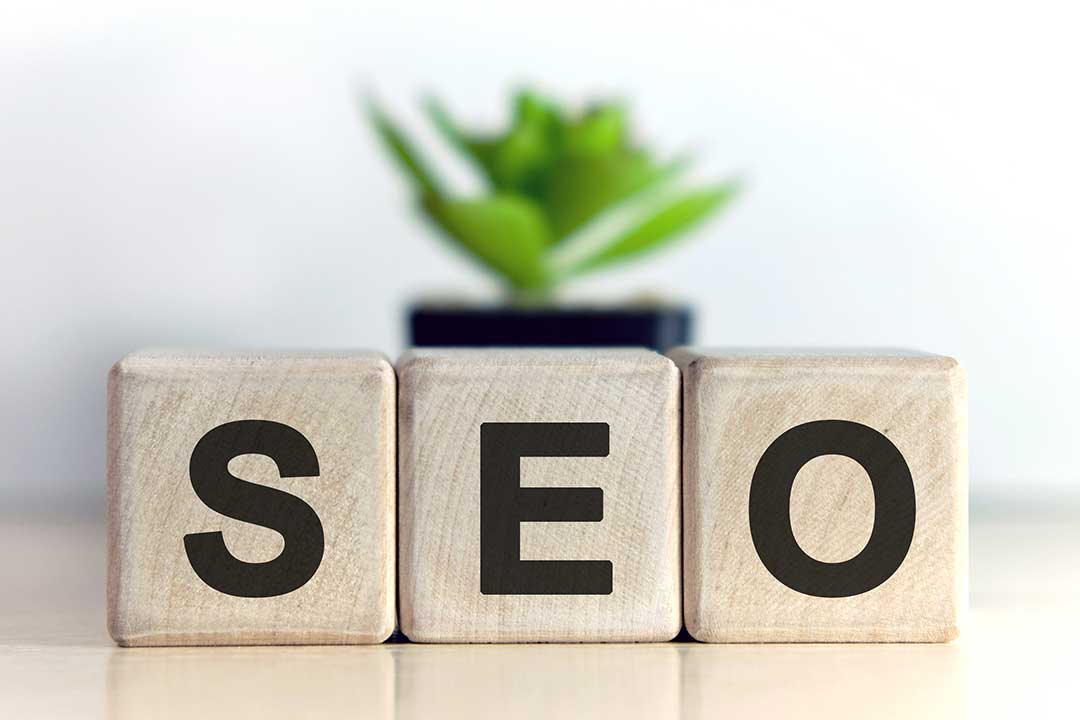How to optimize your website for search engines

In today’s digital world, having a website for your business is crucial for success. But just having a website is not enough. Optimizing it for search engines to improve its visibility and ranking is important. This article will discuss the key strategies for optimizing your website for search engines in 2023.
Search Engine Optimization (SEO) is vital in driving traffic to your website and increasing its online visibility. Optimizing your website can attract more potential customers and improve your online reputation.
As search engines continue to evolve, it’s important to stay up-to-date with the latest SEO techniques to ensure your website remains competitive in the search results.
This article will cover the basics of SEO and provide you with a step-by-step guide on optimizing your website for search engines.
Whether you’re a beginner or an experienced professional, this guide will give you the knowledge you need to improve your website’s SEO and drive more traffic to your site.
Table of Contents
How to Optimize Your Website for Search Engines in 8 Simple Steps
SEO can seem overwhelming, but it can be broken down into simple steps that you can follow to improve your website’s ranking. Here are 8 simple steps to optimize your website for search engines:
Step 1: Keyword Research
The first step in optimizing your website is identifying the keywords your target audience is searching for. This can be done through keyword research tools, such as Google Keyword Planner, SEMrush, and Ahrefs. Once you have a list of keywords, you can use them in your website’s content and meta tags to help search engines understand what your site is about.
Step 2: On-Site Optimization
On-site optimization refers to optimizing various elements of your website, including title tags, meta descriptions, and header tags.
This helps search engines understand the structure and content of your website. It’s also important to ensure that your website is user-friendly, with a clear navigation structure and easily accessible content.
Step 3: Page Speed Optimization
Page speed is crucial in SEO as it directly impacts the user experience. A slow-loading website can lead to high bounce rates and lower search engine rankings.
You can use tools such as Google PageSpeed Insights, GTmetrix, and Pingdom to optimize your website’s page speed. These tools will provide you with recommendations on how to improve your website’s speed and performance.
Step 4: Content Creation and Optimization
Creating high-quality, original content is crucial for SEO success. Content should be optimized for search engines and users, with keywords strategically placed throughout. Additionally, your website should be regularly updated with fresh content to keep visitors engaged and coming back.
Step 5: Link Building
Link building refers to acquiring links from other websites to your own. This helps search engines understand that other sites consider your content to be valuable and trustworthy. High-quality links from authoritative websites can significantly improve your search engine rankings.
Step 6: Mobile Optimization
More and more users are accessing the internet from their mobile devices, so it’s important to ensure that your website is optimized for mobile. This includes ensuring that your website is responsive and loads quickly on mobile devices. You can use tools such as Google’s Mobile-Friendly Test to check if your website is optimized for mobile.
Step 7: Tracking and Analytics
Tracking and analyzing your website’s performance is crucial for ongoing SEO success. Tools such as Google Analytics can help you understand how visitors interact with your site, what keywords they use to find you, and where they’re coming from. This information can be used to make data-driven decisions and continually improve your website’s SEO.
Step 8: Ongoing SEO Maintenance
SEO is not a one-time process; it requires ongoing maintenance to ensure that your website remains optimized and competitive in the search results. This includes regularly updating your website’s content, monitoring your search engine rankings, and keeping up-to-date with the latest SEO best practices.
By following these 8 simple steps, you can optimize your website for search engines and improve its visibility and ranking. With the right strategies in place, you can attract more visitors to your site and drive more traffic to your business.
Can I Do SEO Myself?
Pros of DIY SEO
Doing your own SEO can be a cost-effective option for small businesses and websites with a limited budget. You will also learn about the process and the workings of search engines, which can be useful for future projects. Additionally, you can control the process and implement changes quickly by doing the work yourself.
Cons of DIY SEO
However, SEO can be a time-consuming process, and it requires technical skills and knowledge. The algorithms used by search engines are constantly evolving, and staying up-to-date with these changes can be difficult for those unfamiliar with the field. As a result, your website may not perform as well as it could with professional optimization.
Benefits of Hiring a Professional Website Optimization Company
Hiring a professional website optimization company can bring a wealth of expertise and experience to your SEO efforts. This can save you time and ensure that your website is optimized effectively. Companies also have access to advanced tools and resources that can improve your website’s performance.
Regular reporting and analysis can also help you track your website’s progress and make informed decisions about future optimization efforts. Finally, working with a professional company can ensure that your website stays up-to-date with the latest industry trends and algorithm updates.
How to Increase Your Website Optimization
The 3 C’s of SEO
Content, Code, and Context The 3 C’s of SEO (Content, Code, and Context) are the three key factors that determine the success of your website optimization efforts.
Content refers to the quality and relevance of the information on your website. Code refers to the quality of the HTML and CSS used to build your site. Context refers to the way in which your website is structured and how its pages are linked together. These three factors are all interrelated and must be optimized together to achieve the best results.
The Four Types of SEO
The four main types of SEO are Technical, On-Page, Off-Page, and User Experience. Technical SEO refers to the optimization of the technical aspects of your website, such as the structure, coding, and hosting.
On-Page SEO is optimizing the content and HTML elements on your website pages. Off-Page SEO optimizes external factors that affect your website, such as backlinks and social media. User Experience SEO refers to the optimization of the user experience on your website, such as the design and usability.
Five Steps to Improve Website SEO
- Keyword Research
Understanding the keywords and phrases your target audience is searching for is key to optimizing your website. - On-Site Optimization
Ensure that your website is properly structured and that your content and HTML elements are optimized. - Page Speed Optimization
A slow-loading website can negatively impact your search engine rankings, so optimizing your page speed is important. - Content Creation and Optimization
Create high-quality, relevant content that is optimized for your target keywords. - Link Building
Building high-quality backlinks to your website can improve its visibility and search engine rankings.
Five Most Important On-Page Optimization Factors
- Title Tags
The title tag is the text that appears in the search engine results and should be optimized for your target keywords. - Meta Descriptions
The meta description is the text that appears beneath the title tag in the search results and should provide a clear and concise description of the page’s content. - Header Tags
Header tags (H1, H2, H3, etc.) help to structure your content and signal its importance to search engines. - URL Structure
A clear and concise URL structure can help search engines understand the structure of your website and improve its rankings. - Content Quality and Relevance
The quality and relevance of your content are crucial for optimizing your website for search engines.
Importance of Page Speed Optimization
Page speed optimization is a crucial aspect of driving traffic to your website. A slow-loading website can frustrate users, leading to a high bounce rate and decreased engagement.
On the other hand, a fast website can improve user experience and keep visitors on your site for longer. Search engines also factor in page speed when ranking websites, so a fast website can improve your search engine rankings and drive more organic traffic to your site.
Importance of Regular Updates and Maintenance
Regular updates and maintenance are crucial in optimizing your website for search engines and attracting more traffic. Search engines favor websites that provide fresh, relevant, and high-quality content, which is why regular updates are important.
Regularly updating the website shows search engines that your website is active and keeps your audience engaged.
Additionally, website maintenance is important to keep your website secure and ensure that it is functioning properly. Regular maintenance can prevent technical issues and ensure your website runs smoothly.
This will help improve your website’s overall user experience, making it more attractive to visitors and search engines.
Overall, maintaining an updated and well-maintained website is an important aspect of search engine optimization and can help improve your website’s visibility, user experience, and ranking.
FAQs: How to optimize your website for search engines
What is the importance of keyword research for website optimization?
Keyword research is an important part of website optimization because it helps you understand what keywords people use to search for your products or services.
By targeting these keywords in your website content, you can increase your visibility in search engine results and drive more traffic to your site.
What are the most important on-page optimization factors for a website?
The most important on-page optimization factors for a website include having high-quality, relevant content, using descriptive and keyword-rich meta tags, optimizing images and videos with appropriate alt tags and file names, having a user-friendly website design, and having a well-structured website with a clear hierarchy of pages.
What are the benefits of hiring a professional website optimization company?
Hiring a professional website optimization company can provide several benefits, including access to specialized knowledge and experience, staying up-to-date with the latest search engine optimization strategies and techniques, and saving time and resources by outsourcing the optimization process.
Additionally, a professional optimization company can provide valuable insights and recommendations to help improve your website’s search engine ranking, driving more traffic and increasing conversions.
Conclusion: How to optimize your website for search engines
In conclusion, optimizing your website for search engines is crucial for the success and visibility of your website in 2023.
By following the 8 simple steps of keyword research, on-site optimization, page speed optimization, content creation and optimization, link building, mobile optimization, tracking and analytics, and ongoing SEO maintenance, you can significantly improve your website’s SEO.
You can either opt to do the optimization yourself or hire a professional website optimization company for better results.
The four types of SEO, the five steps to improve website SEO, and the five most important on-page optimization factors, are important to consider for better website optimization.
Popular SEO techniques like WordPress SEO optimization and website SEO marketing, as well as the four pillars of SEO (content, technical, link, and user experience), and the most powerful SEO tool, can help you improve your website’s SEO.
Driving traffic to your website requires page speed optimization and the use of SEO tools to monitor and improve rankings. Regular updates and maintenance, as well as search engine optimization services and website optimization services, are also important to consider.
In summary, optimizing your website for search engines in 2023 requires a combination of various techniques and considerations. Still, with the right approach, you can achieve significant improvement in your website’s visibility and success.



